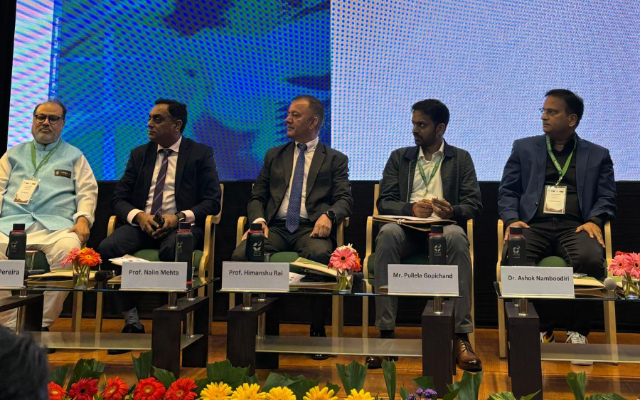
When I set out to launch the regional langauge channels for Star Sports in 2018, one of the key issues was the lack of sports prodcuers in the regional langauges. In the first round, we recruited people who knew television production assuming that we could teach them the nuances of sport. This experimet failed miserably.
In the second round, we turned this logic on its head and recruited people who were passionate about sports. We thought we could teach them the nuances of television production. In the final analysis, this is what worked for us. The lesson we learnt is that sports is a passion; channelling that into communicating a story needs formalised training.
India’s sporting landscape stands on the edge of transformation. With the country’s bid for the 2036 Olympic Games, the proliferation of professional leagues, and unprecedented private investment, the sports ecosystem is evolving from a passion pursuit into a serious business. Yet, amid this momentum, one crucial ingredient remains underdeveloped — a formal, structured approach to sports management education.
India’s core sports industry, which includes media rights, sponsorships, leagues, and merchandising, is projected to exceed $20 billion by 2030. The broader sports economy, encompassing infrastructure, fitness, manufacturing, tourism, and education, could touch $130 billion, according to a Deloitte–Google report. This sector is expected to create nearly 10.5 million jobs by 2030 and generate over $21 billion in indirect tax revenue.
From event operations and athlete management to sports analytics and digital fan engagement, this wave of opportunity is generating demand for trained professionals across diverse domains. Yet, most of India’s workforce in this space remains unskilled or self-taught, reflecting an urgent need for structured academic programmes that can translate passion into professional expertise.
For More Exciting Articles: Follow RevSportz
India has faced similar inflection points before. In the late 1990s, the IT and BPO industries expanded rapidly, but it was the creation of training ecosystems like NIIT, Aptech, and the IITs that supplied the talent needed for sustained growth. Likewise, the hospitality and tourism sectors became global success stories only after the rise of Institute of Hotel Management programmes formalised their talent base.
Sport is now at the same threshold. The industry needs not just athletes and coaches, but data analysts, broadcast producers, sports lawyers, sponsorship managers, and event technologists. Without a trained workforce, India risks missing the opportunity to capitalise on its sporting momentum, particularly as it eyes the global stage in 2036.
Recognising this opportunity, RevSportz Global and the Bengal Institute of Business Studies (BIBS) recently signed a Memorandum of Understanding to launch an MBA in Marketing with a Specialisation in Sports Management from next year. The programme is designed to bridge academia and industry through a hybrid format — 70% classroom instruction and 30% online and experiential learning, ensuring that students graduate with both conceptual clarity and field exposure.
The curriculum includes modules on sports analytics, rights management, athlete branding, and fan engagement, with internships guaranteed through RevSportz’s network of industry partners. This model is precisely what India’s sports education ecosystem needs — a synergy between business schools and real-world practitioners who understand the dynamics of live sport, media, and commerce.
As India marches towards 2036, formalising sports education must become a national priority. Universities, federations, and corporates need to co-develop accredited programmes, while government incentives and scholarships can widen access for students from non-metro regions. The goal is not just to fill jobs but to build an ecosystem where research, innovation, and global best practices thrive.
India’s sporting story will not be written by athletes alone. It will be powered by the managers who negotiate rights deals, the data analysts who decode performances, and the marketers who connect fans to heroes. Formalised sports management courses are not a luxury anymore; they are the foundation on which India’s $130 billion sports economy and Olympic aspirations will stand.
Also Read: Building on the DY Patil Moment – A Strategic approach for Women’s Cricket Growth in India





